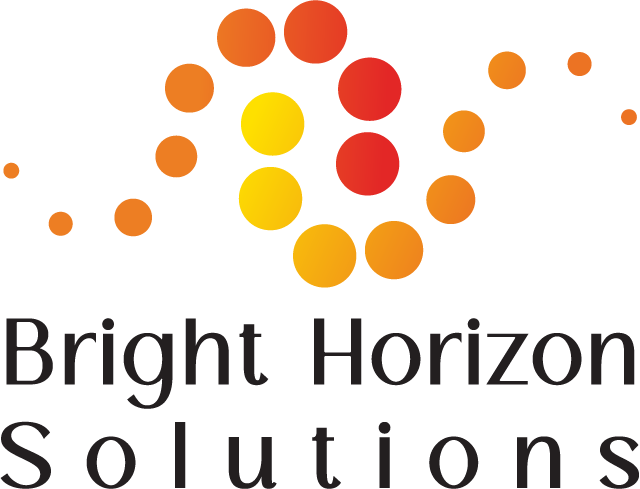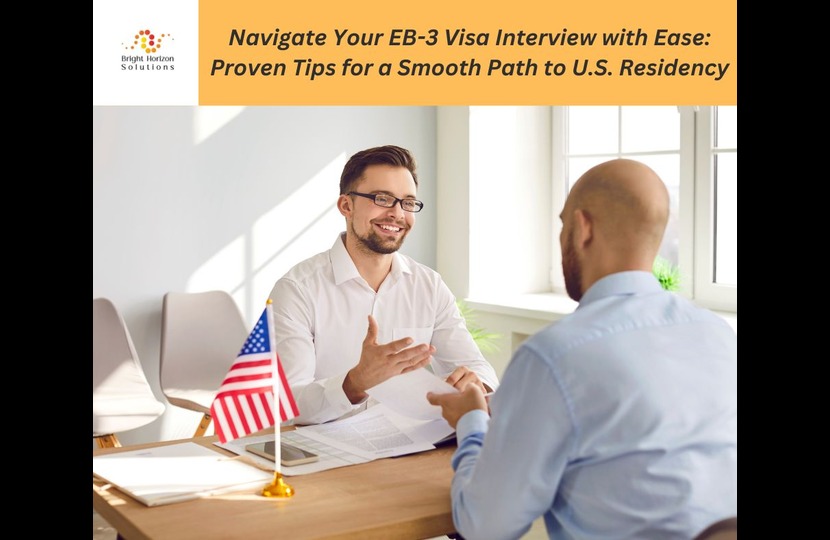The EB-3 visa interview is a critical step in your journey to obtaining U.S. permanent residency. Proper preparation can significantly increase your chances of success. This guide provides an in-depth look at how to prepare for your EB-3 visa interview, covering everything from understanding the process to practical tips for the day of your interview.
Understanding the EB-3 Visa Interview Process
The EB-3 visa interview is conducted either at a U.S. embassy or consulate if you are outside the United States (consular processing) or at a USCIS office if you are adjusting your status while already in the United States. The interview aims to verify the information provided in your visa application and to assess your eligibility for the EB-3 visa.
Pre-Interview Preparation
1. Review Your Application
Thoroughly review all the documents and information you submitted with your EB-3 visa application, including:
- Form I-140 (Immigrant Petition for Alien Worker): Ensure you are familiar with the details of your job offer, employer, and your qualifications.
- Labor Certification (PERM): Understand the job requirements and the recruitment process your employer conducted to obtain the labor certification.
- Supporting Documents: Review your educational certificates, work experience letters, and any other documents submitted with your application.
2. Gather Required Documents
Compile all necessary documents for your interview. These typically include:
- Passport: Ensure your passport is valid for at least six months beyond your intended date of entry into the United States.
- Interview Appointment Letter: Bring the original letter scheduling your interview.
- Visa Application Confirmation Page (DS-260): If you are going through consular processing, bring the confirmation page of your online immigrant visa application.
- Medical Examination Results: Obtain a sealed envelope containing your medical examination results from a designated physician.
- Employment Letter: A letter from your U.S. employer confirming the job offer and details of your employment.
- Financial Documents: Evidence of your ability to support yourself financially, such as bank statements, tax returns, or an affidavit of support if required.
- Photographs: Passport-sized photographs as per the U.S. visa photo requirements.
- Other Supporting Documents: Birth certificates, marriage certificates, police clearance certificates, and any other documents specified in your interview appointment letter.
3. Practice Common Interview Questions
Prepare for the types of questions you may be asked during your interview. Common questions include:
- About Your Job Offer:
- What is the name of your employer, and what does the company do?
- What will be your job title and responsibilities?
- How did you find this job?
- About Your Qualifications:
- What are your educational qualifications?
- How does your previous work experience relate to this job?
- Can you provide examples of projects or tasks you have completed in your previous jobs?
- About Your Intentions:
- Why do you want to work in the United States?
- What are your long-term career goals?
- Do you have plans to return to your home country?
4. Plan for Logistics
Ensure that you have planned the logistics for your interview day:
- Travel Arrangements: Plan how you will travel to the interview location, considering the time required for travel and potential delays.
- Arrival Time: Aim to arrive at the embassy, consulate, or USCIS office at least 30 minutes before your scheduled interview time.
- Dress Code: Dress professionally in business attire to make a good impression.
During the Interview
1. Present Yourself Confidently
First impressions matter. Present yourself confidently and professionally:
- Body Language: Maintain good posture, make eye contact, and offer a firm handshake if appropriate.
- Communication: Speak clearly and confidently. Listen carefully to the questions and take a moment to think before responding.
2. Be Honest and Consistent
Provide truthful and consistent answers to all questions. If you do not know the answer to a question, it is better to admit it than to guess or provide inaccurate information.
3. Stay Calm and Composed
It is natural to feel nervous during the interview, but try to stay calm and composed:
- Deep Breaths: Take deep breaths to calm your nerves.
- Positive Attitude: Maintain a positive attitude throughout the interview, even if faced with challenging questions.
4. Clarify If Necessary
If you do not understand a question, politely ask the interviewer to repeat or clarify it. It is essential to provide accurate answers, so do not hesitate to seek clarification when needed.
Post-Interview Steps
1. Follow Up
After the interview, you may need to follow up with the embassy, consulate, or USCIS office:
- Additional Documentation: If the interviewer requests additional documentation, submit it as soon as possible.
- Case Status: Regularly check the status of your case online or through the provided contact information.
2. Address Any Concerns
If there are any issues or concerns raised during the interview, address them promptly and thoroughly. This may involve providing additional evidence or clarifications to support your case.
3. Stay Informed
Keep yourself informed about the next steps in the process:
- Visa Issuance: If your visa is approved, you will be informed about the issuance process and when you can expect to receive your visa.
- Immigration Procedures: Understand the procedures for entering the United States with an EB-3 visa, including any requirements for medical exams, vaccinations, and travel arrangements.
Tips for a Successful EB-3 Visa Interview
- Research Your Employer: Have a thorough understanding of your employer’s business, including its products, services, and industry reputation. This knowledge will demonstrate your genuine interest in the company and the job.
- Know Your Role: Be well-versed in the details of your job offer, including your job title, responsibilities, and the skills required for the position. Be prepared to explain how your qualifications make you a suitable candidate for the role.
- Organize Your Documents: Keep all your documents organized and in a neat folder. This will help you quickly retrieve any document requested by the interviewer and present yourself as a well-prepared candidate.
- Practice Makes Perfect: Conduct mock interviews with a friend or family member to practice answering potential questions. This will help you feel more confident and articulate during the actual interview.
- Be Yourself: While it is important to present yourself professionally, be genuine and authentic in your responses. The interviewer will appreciate honesty and transparency.
- Stay Positive: Maintain a positive attitude throughout the interview. A positive demeanor can leave a lasting impression on the interviewer and increase your chances of success.
Conclusion
Preparing for your EB-3 visa interview requires thorough planning, organization, and practice. By understanding the process, gathering the necessary documents, practicing common interview questions, and presenting yourself confidently, you can increase your chances of a successful interview. Remember, the interview is an opportunity to showcase your qualifications and demonstrate your genuine interest in contributing to the U.S. workforce. With careful preparation and a positive attitude, you can navigate the interview process and move closer to achieving your dream of U.S. permanent residency.
If you have any further questions or need assistance
Visit us at: www.bhslgroup.com
Phone: +1-212-347-6364
Email: info@bhslgroup.com


